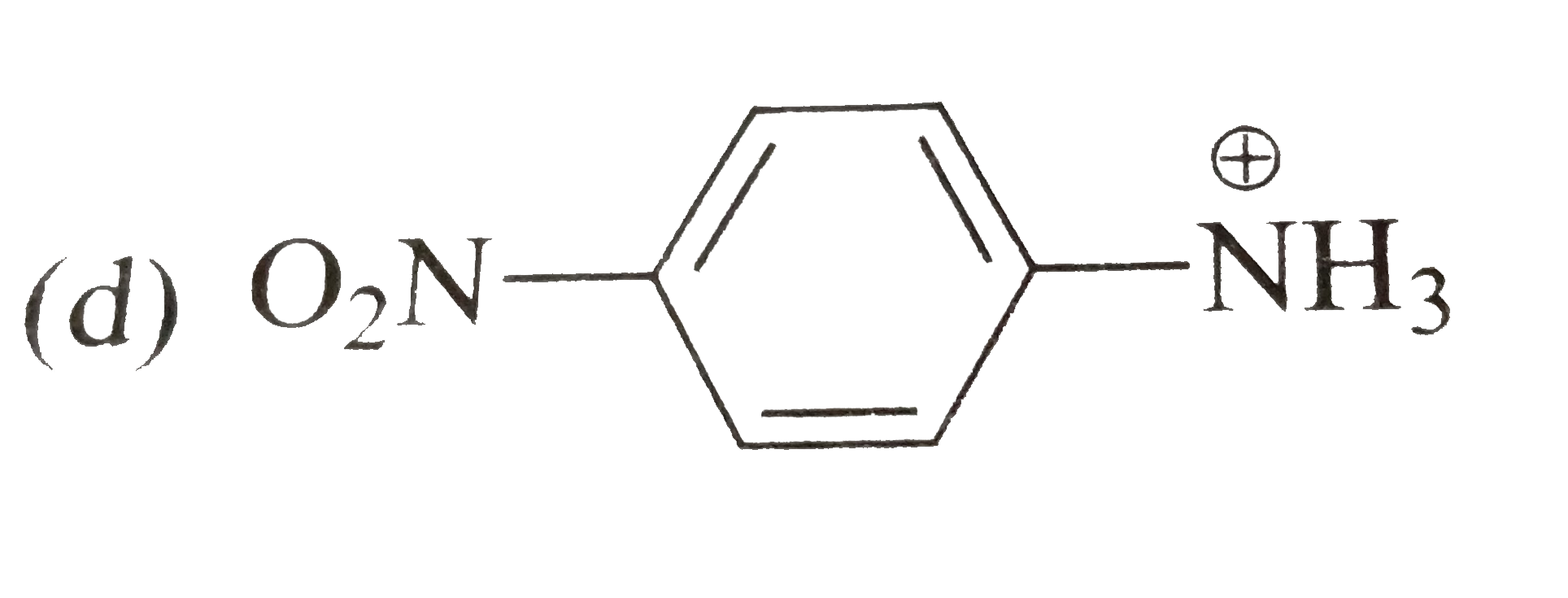Strongest acid among the following is
CH3COOH
FCH2COOH
F2CHCOOH
F3C−COOH
The correct Answer is:D
To determine the strongest acid among the given options, we need to analyze the structure of each carboxylic acid and the presence of electron-withdrawing groups that can stabilize the conjugate base formed after deprotonation.
1. Identify the Structure of Each Acid:
- Option A: CH3C(=O)OH (Acetic Acid)
- Option B: FCH2C(=O)OH (Fluoroacetic Acid)
- Option C: F2CHC(=O)OH (Difluoroacetic Acid)
- Option D: F3C(=O)OH (Trifluoroacetic Acid)
2. Understand the Concept of Acidity:
- The acidity of a carboxylic acid is influenced by the stability of its conjugate base (the carboxylate ion formed after losing a proton).
- A more stable conjugate base corresponds to a stronger acid.
3. Analyze the Electron-Withdrawing Groups:
- Electron-withdrawing groups (EWGs) stabilize the negative charge on the conjugate base, making the acid stronger.
- The strength of the EWG effect increases with the number of electronegative atoms attached to the carbon adjacent to the carboxylic group.
4. Evaluate Each Option:
- Option A (Acetic Acid): Contains a methyl group (CH3) which has a +I effect (electron-donating), making it a weaker acid.
- Option B (Fluoroacetic Acid): Contains one fluorine atom, which has a -I effect, providing some stabilization to the conjugate base.
- Option C (Difluoroacetic Acid): Contains two fluorine atoms, which increases the -I effect, making the conjugate base more stable than that of Fluoroacetic Acid.
- Option D (Trifluoroacetic Acid): Contains three fluorine atoms, providing the strongest -I effect, leading to maximum stabilization of the conjugate base.
5. Conclusion:
- Based on the analysis, Trifluoroacetic Acid (Option D) has the strongest electron-withdrawing effect due to the presence of three fluorine atoms. This results in the greatest stabilization of its conjugate base, making it the strongest acid among the options provided.
Final Answer:
The strongest acid among the given options is Option D: Trifluoroacetic Acid (F3C(=O)OH).
- Option A: CH3C(=O)OH (Acetic Acid)
- Option B: FCH2C(=O)OH (Fluoroacetic Acid)
- Option C: F2CHC(=O)OH (Difluoroacetic Acid)
- Option D: F3C(=O)OH (Trifluoroacetic Acid)
- The acidity of a carboxylic acid is influenced by the stability of its conjugate base (the carboxylate ion formed after losing a proton).
- A more stable conjugate base corresponds to a stronger acid.
- Electron-withdrawing groups (EWGs) stabilize the negative charge on the conjugate base, making the acid stronger.
- The strength of the EWG effect increases with the number of electronegative atoms attached to the carbon adjacent to the carboxylic group.
- Option A (Acetic Acid): Contains a methyl group (CH3) which has a +I effect (electron-donating), making it a weaker acid.
- Option B (Fluoroacetic Acid): Contains one fluorine atom, which has a -I effect, providing some stabilization to the conjugate base.
- Option C (Difluoroacetic Acid): Contains two fluorine atoms, which increases the -I effect, making the conjugate base more stable than that of Fluoroacetic Acid.
- Option D (Trifluoroacetic Acid): Contains three fluorine atoms, providing the strongest -I effect, leading to maximum stabilization of the conjugate base.
- Based on the analysis, Trifluoroacetic Acid (Option D) has the strongest electron-withdrawing effect due to the presence of three fluorine atoms. This results in the greatest stabilization of its conjugate base, making it the strongest acid among the options provided.
The strongest acid among the given options is Option D: Trifluoroacetic Acid (F3C(=O)OH).
Topper's Solved these Questions
- BOOK - A2ZCHAPTER - ALDEHYDES, KETONES AND CARBOXYLIC ACIDEXERCISE - Assertion-Reasoning Questions7videos
ALDEHYDES, KETONES AND CARBOXYLIC ACID
- BOOK - A2ZCHAPTER - ALDEHYDES, KETONES AND CARBOXYLIC ACIDEXERCISE - Section D - Chapter End Test30videos
ALDEHYDES, KETONES AND CARBOXYLIC ACID
- BOOK - A2ZCHAPTER - ALDEHYDES, KETONES AND CARBOXYLIC ACIDEXERCISE - AIPMT/NEET Questions43videos
ALDEHYDES, KETONES AND CARBOXYLIC ACID
- BOOK - A2ZCHAPTER - ALCOHOLS, PHENOLS AND ETHERSEXERCISE - Section D - Chapter End Test30videos
ALCOHOLS, PHENOLS AND ETHERS
- BOOK - A2ZCHAPTER - BIOMOLECULESEXERCISE - Section D - Chapter End Test30videos
BIOMOLECULES
Similar Questions
Knowledge Check
- Question 1 - Select One
The strongest acid among the following :
ACF3COOHBCBr3COOHCCH3COOHDCCl3COOH - Question 2 - Select One
The strongest acid among the following
AH2SO4BH2SeO4CH2TeO4DH2PoO4 - Question 3 - Select One
Find out strongest acid among the following :
ACH3−⊕NH3BC6H5−⊕NH3CH2N−⊕NH2∣∣C−NH2D
The strongest acid among the following aromatic compound is
View SolutionThe strongest acid among the following aromatic compound is
View SolutionThe strongest acid among the following aromatic compound is:
View SolutionFind the strongest acid among the following compounds is:
View SolutionFind the strongest acid among the following compound
View Solution

